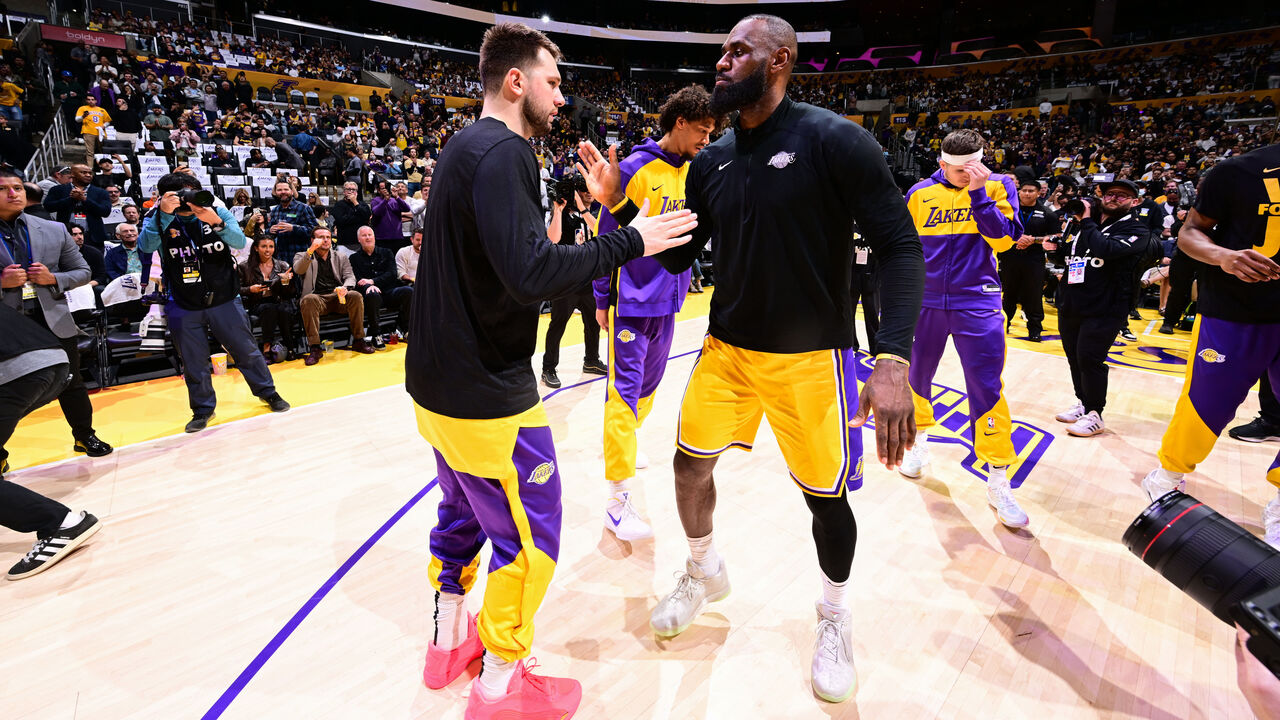LeBron doesn't call the shots in L.A. anymore. What happens now?
For almost all of his remarkable career, LeBron James has called the shots.
His teams have done whatever they could to keep him happy. Cleveland honored his preference and kept signing him to short-term deals in his second stint there, even when they likely suspected he was on his way out. The Los Angeles Lakers drafted his son, Bronny, after a forgettable college season, then gave him the kind of multi-year, guaranteed contract that players selected with the 55th pick simply don't get.
LeBron engineered superteams in Miami, Cleveland and Los Angeles, winning titles in all three spots. But his days as a de facto general manager appear to have come to an abrupt end.
Last month, he picked up his $52-million player option to return to the Lakers, but made it clear he wasn't entirely thrilled about it. His agent said in a statement that LeBron understood the Lakers were building for the future, but he also wanted to compete for an NBA title now. "We do want to evaluate what's best for LeBron at this stage of his life and career," it read.
The none-too-subtle message was that LeBron expected the Lakers to add to a team that lost in five games in the first round of the playoffs and probably isn't among the top four teams in the West.
L.A. responded to that message by largely ignoring it. The club added some pieces - Deandre Ayton, Jake LaRavia, and, seemingly soon, Marcus Smart - but has preserved its future salary-cap space to build around Luka Doncic in a post-LeBron world.
All of that makes perfect sense. Having landed Doncic in the world's most lopsided basketball trade last winter, the Lakers should absolutely keep their cap sheet clean so that they can add the pieces that best complement the 26-year-old superstar's skill set and maintain flexibility beyond this season, during which LeBron turns 41.

In short, the Lakers don't really expect to contend for a championship this year, even if LeBron wants them to.
Is it a standoff? Not really. LeBron must know that the Lakers will worry about Doncic's timeline, especially because he's eligible to sign a long-term extension beginning next month. And if LeBron wanted leverage, he could have declined his option and opened up the possibility of taking a cheap deal to chase a title somewhere else.
As it stands, there's nowhere for him to go. The good teams don't have enough cap space for his huge salary, and the bad teams with cap space are, well, bad.
There's also the complicating factor of Bronny. The younger James made 27 appearances for the Lakers and averaged just 2.3 points in 2024-25, but he could take on an increased role this year - he was one of the standout players in Summer League - and have meaningful game time next to his father. After LeBron spoke last season about how important it was to him to share the floor with Bronny, the chance to do that in non-garbage minutes must hold significant appeal.
All signs, then, suggest that he's staying. But it's also hard to imagine LeBron playing out his final year on a Los Angeles team that's been reoriented around Doncic, even if his kid is down at the end of the bench more often.
Will he try to engineer one last move? Logistically speaking, it's hard to work out.
Going back to Cleveland, which has its romanticism, would require the Cavaliers to blow up a roster that earned the top seed in the East last season. A reunion with Kyrie Irving and Anthony Davis in Dallas alongside super-rookie Cooper Flagg would similarly have great narratives, but the Mavericks likely want to see what they have after lucking into Flagg at the draft lottery. A move across town to the Clippers? Sure, but what exactly either team would accomplish with the fever-dream swap of Kawhi-for-LeBron is hard to figure out.
There's no practical scenario for a LeBron move. But emotionally, it still seems like it could happen. He's spent 22 NBA seasons bending teams to his will. Can he do it one last time?
Scott Stinson is a contributing writer for theScore.